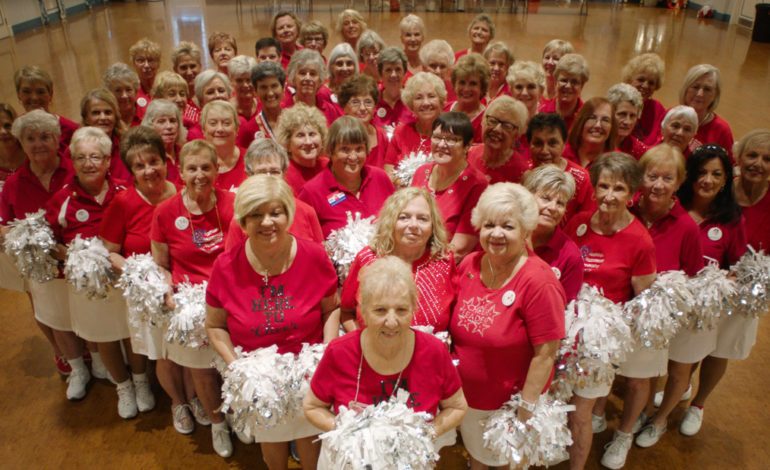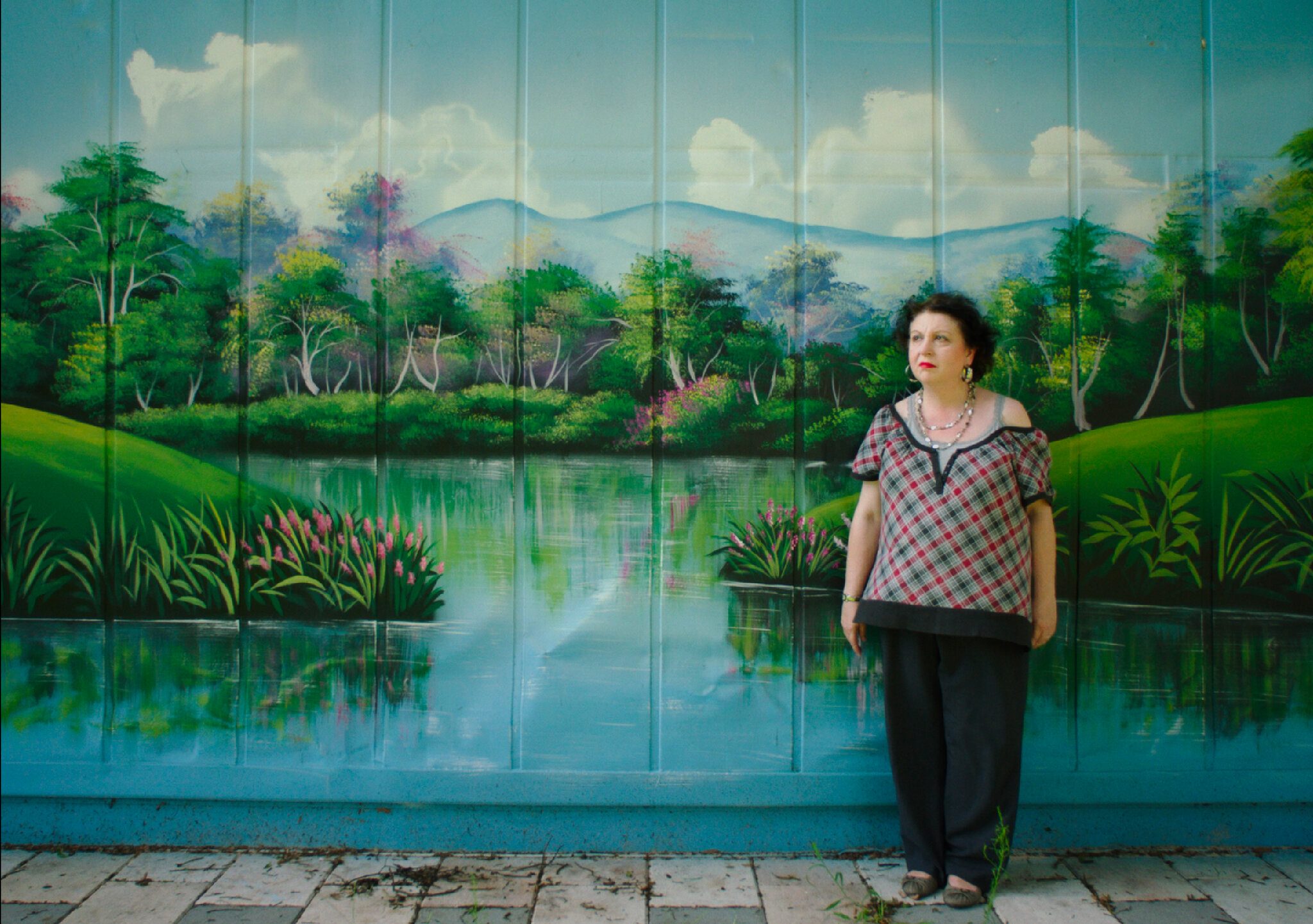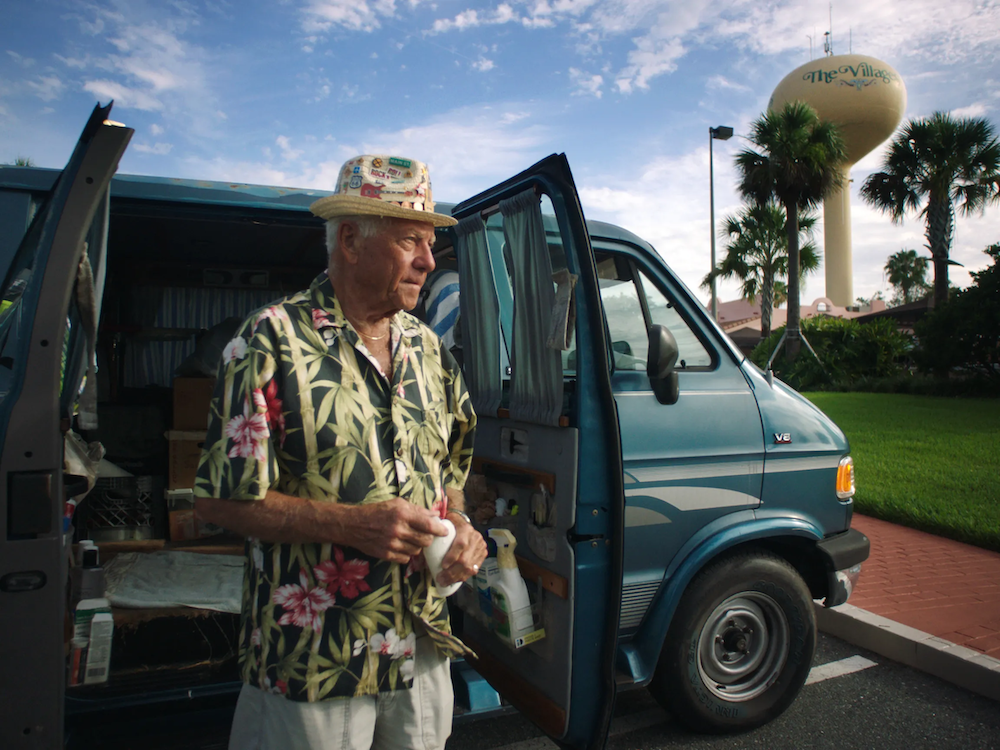

In his feature documentary debut, filmmaker Lance Oppenheim sets his eye on retirement. Or, more accurately, he uses the film to study an unusual retirement community and a few of its more unusual residents. In Some Kind of Heaven, Oppenheim examines life in The Villages, a sprawling, immaculately manicured slice of the American Dream sprung magically to life and dropped squarely in the middle of Florida. On the surface, The Villages is the sort of happy, idyllic setting in which it would seem nearly impossible for anyone to be unhappy, and for most of the locals, that brochure-style vision of perfection is the reality. But for a handful of people living on the fringes of the community and struggling with isolation – sometimes of their own making, sometimes imposed by fate – this virtual paradise can feel more like a fantasy, an illusion, or even a prison.


Developed in the 1980s, The Villages was designed with aging baby boomers in mind. Built around the familiar image of the town center, it is part suburb, part shopping mall, and part social club. The Villages offers pretty much anything you could dream of to help wile away your golden years without ever having to venture out into real world. There are movie theaters, restaurants, live music venues, and classes on everything from acting to baton twirling. There’s even a club exclusively for women named Elaine, who presumably meet to say, “I’m sorry, were you talking to me?” It’s a perfect blend of comfort, activity, and consumerism that proved wildly successful with its target demographic. Since it’s founding, the community has expanded from eight hundred residents to 130,000, including around 20,000 who are single and ready to mingle.
Despite the veneer of middle-class perfection, not everyone is living their best life. Barbara sold her home and moved down from Boston to enjoy her retirement, but when her husband died unexpectedly, she found herself trapped. She dreams of moving back home to New England, but even working a full-time job, she still can’t afford to leave. Meanwhile, Anne and Reggie are a mostly happily married couple. For Anne, The Villages delivers everything it promises, and she spends her days socializing with her girlfriends and playing pickleball. Reggie, on the other hand, doesn’t share her interests and misses his wife while she’s out living life to the fullest. To pass the time, he develops a drug habit and does shirtless tai chi in the middle of the golf course. Which may still qualify as living your best life for some, but leaves Anne worried about her husband and their marriage. Finally, there’s Dennis, who isn’t technically a resident of The Villages by any legal standard. A vagrant con-man with a penchant for partying, Dennis spends his time looking for a beautiful, rich widow who is just itching to have a deadbeat move into her house.


The film follows these four characters as they try to work their way out of their respective ruts, but mostly just sink deeper into them. Barbara searches for a new companion, but faces disappointment at every turn. The Parrot Head Club run by a seemingly flirty salesman turns out to be a dead end, as does the Single’s Club which where a bunch of ladies gather to play some deeply unsexy tambourine together. While Barbara is busy navigating the geriatric dating scene, Reggie tries to navigate the criminal justice system after getting caught with small amounts of marijuana and cocaine that he “forgot” he had in his wallet. Making matters worse, he decides to represent himself in court, a plan so ill-conceived that even the judge tells him it’s a very bad idea. And then there’s Dennis. Considering that Dennis lives in a van and has to go to the pool after dark so he can shower naked in public, it might seem like he can’t really sink any further. Yet when a run in with the cops brings a bankrupting DUI from California back to life, he somehow manages to pull it off. By focusing on this disparate group of stragglers, the film reminds its viewers that there’s a dark side to aging that can’t simply be swept away by beauty and convenience. Even in this “heaven,” people still have to contend with their own personal struggles. Whether those struggles stem from death, finances, a late mid-life crisis, or simply your own irascible nature, they are real, and they don’t go away just because you can drive a golf cart to the movies.
Verdict: 4 out of 5 Stars
Like its stars, Some Kind of Heaven takes a lot of sharp turns in its depiction of the golden years. From sad to hopeful, from cute to skeevy, the film shows that it is hard to get old, even when you do it in the most idyllic setting money can buy. While a few viewers may be inspired to go out and put a deposit down on their very own little piece of heaven, more will probably be moved to call their parents and check in a little more frequently.
